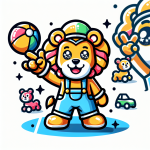Since the advent of the internet, people have turned to online platforms for an increasingly expansive range of solutions. Among these expanding possibilities is the use of online platforms for child care and development. A digital revolution is taking place in the field of child care, and online platforms are at the forefront, providing essential resources for both parents and caregivers.
As a parent trying to find the right person to entrust the care of your child to, the process can be daunting. On the other hand, as a qualified care provider, it can be challenging to connect with families that need your services. Here, we observe a new market for online platforms that aid in bridging the gap between these two parties.
Child care listing platforms
Online platforms like Care.com, SitterCity, and Nanny Lane have positioned themselves as essential resources in solving the child care puzzle. These platforms allow parents to search for care providers in their area based on specific criteria such as experience, qualifications, availability, and more. They provide detailed profiles of the caregivers, reviews from other parents, and the ability to carry out background checks, ensuring parents have all the information they need to make an informed decision.
On the other end, caregivers can set up their profiles showcasing their qualifications, experience, and availability. They can apply for posted jobs, giving them access to opportunities they may not have had otherwise.
Development-focused e-learning platforms
Online platforms are not only revolutionising child care but also facilitating child development. E-learning platforms like ABCmouse, ReadingIQ, and Khan Academy Kids offer fun, engaging, and educational content for kids. They provide resources that cover key subjects such as maths, reading, and science, supporting a child's learning journey outside of the classroom.
It's not just academic development that these platforms support. Others, like GoNoodle and Cosmic Kids Yoga, focus on physical health, offering videos that de-stress, energise, and improve a child's overall well-being.
Digital tools for behaviour management and communication
Tools like ClassDojo are also being utilised for child development. ClassDojo connects teachers with students and parents to build a community. By encouraging positive behaviours and skills such as teamwork and persistence, the platform fosters an environment that facilitates learning and development.
Communication between parents and caregivers or teachers is an essential part of child care and development. Platforms such as Remind help to ease this process, providing a free, easy-to-use interface that allows for real-time communication.
The downsides and future of online platforms
Despite the numerous benefits of online platforms for child care and development, they present some downsides. Cyberbullying, online privacy issues, and screen addiction are some of the risks to be considered. Therefore, it's crucial for parents and caregivers to use these tools responsibly, balancing online activities with offline engagements for a well-rounded childhood.
Looking at the future, the role of these platforms will continue to expand. As technology advances, the tools available for child care and development will become increasingly sophisticated. For example, we can expect to see more platforms incorporating virtual reality and artificial intelligence to create more personalised and immersive learning experiences.
In conclusion, the contribution of these online platforms to child care and development is significant, providing crucial resources for parents, caregivers, and indeed, the children themselves. As we move forward, there will undoubtedly be a continued shift towards these digital solutions for the holistic development of children.


leave a comment